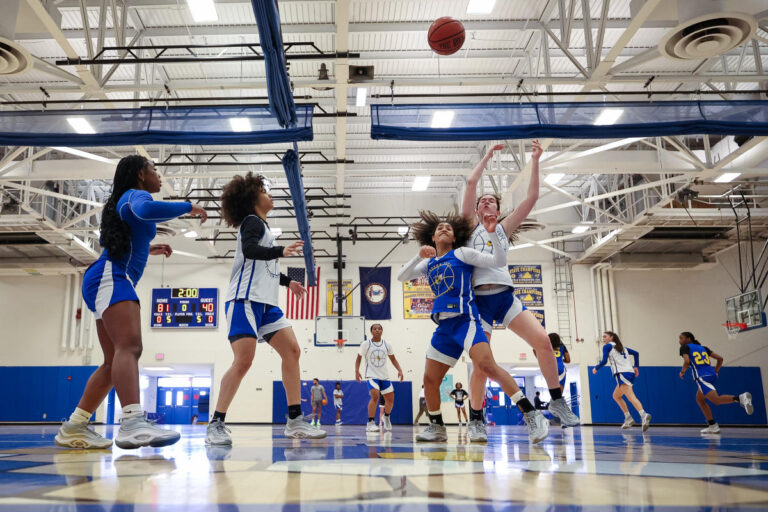As tax day approaches, parents of high school athletes who engage in social media and “name, image, and likeness” transactions need to make sure the IRS doesn't come after their children's assets.
An overlooked and perhaps unintended consequence of the NCAA's name, image, and likeness (NIL) policy is that high school athletes can also participate.
High school athletes who are minors may be held liable for unpaid taxes due to their NIL contracts once they become adults if their parents or guardians did not pay taxes on their income.
“Unlike child actors under the Coogan Act, high school athletes have no protections if their parents fail to file taxes,” said Michael Duffy, managing director of Merrill Lynch Global Wealth and Investment Management. “Without any legal action, minors will be exposed to tax liens.” He cited a state law that requires trust accounts for minors in recreational activities and creates a trusting relationship between children and parents.
He said most college athletes receive advice about their tax obligations, but “that doesn't exist at the high school level.”
Social media monetization: the first step to revenue generation
Most of the NIL's guidance is aimed at college athletes, who are typically 18 years of age or older and considered adults. The IRS's tax guidance regarding NILs also assumes that transactions are made through NIL collectives to college students, not high school athletes.
The NIL Collective is an independent organization, typically sponsored by prominent university alumni, that uses funds from boosters and fundraisers to establish deals with NIL and ways for athletes to monetize their brands.
Because the majority of NIL transactions are tied to an athlete's college career through the organization, NIL funds are typically not distributed until the student arrives on campus.
“My son was a freshman football player in college in 2021 when NIL was legalized and deals were presented and scrutinized,” Deron Turner, founder of 7Even Hills Venture Capital, told Yahoo Finance. “Income has to be considered and parents need to grab the bull by the horns and manage the process.”
As a result of his son's NIL experience, Turner launched PoetrYY, a digital fintech for college students and NIL athletes.
“The NIL came about because college athletes wanted compensation for things like jerseys, and high school students weren't included in the original calculations,” Turner said. “But things change in a free market society, and the marriage of social media presence and brand engagement is a gray area for high school students.”
For most student-athletes, especially high school athletes, the easiest way to make money is to monetize your social media channels through subscriptions, partnerships, and merchandising as a social media influencer.
However, this is not tax-free income.
read more: Free Tax Filing: 7 Ways to Complete Your 2023 Taxes
Unlike employees who receive W-2s, which have FICA and other taxes withheld, most of these athletes receive 1099s. As such, they are responsible for Social Security, Medicare, and state taxes on the income from their social media partnerships.
“If they're a freshman or sophomore at an elite high school, they're scouted by NIL groups, but typically the money doesn't start flowing until their junior or senior year,” Lifeline Financial Legal Services said. Director David Balderston said: the group told Yahoo Finance. “A cautionary tale about high school athletes is Mikey Williams, who had a huge social media following and real brand funding in high school, but things just didn't work out.”
Williams was a high school basketball star with a large following on social media and was one of the first high school athletes to sign an NIL contract, using his social media presence to bring in a huge income.
The fame and money attracted attention. According to Sporting News, he feared for his safety and began carrying a gun to protect himself. An incident at a house party led to a charge of assault with a deadly weapon, and Williams later pleaded guilty to a charge of menacing.
Williams' experience is an extreme example of some of the dangers that high school athletes can face by signing NIL contracts and receiving large sums of money. However, the tax implications of income from social media transactions could affect more young athletes.
Using names, images, and likenesses to avoid the tax implications of these social media branding deals could put these athletes in trouble with the IRS if their parents or guardians don't pay their estimated quarterly taxes. You may get caught.
“Most parents have not kept pace with advances in technology, and if they do not pay taxes on behalf of their minors, athletes may have a tax lien,” Duffy said.
Ignorance of tax law is no excuse
Yahoo Finance reached out to the IRS to ask about the consequences for high school athletes whose parents or guardians did not file taxes on their behalf as minors. Specifically, will they face a tax lien when they turn 18?
An IRS spokesperson directed you to Publication 929 (2021), Child and Dependent Tax Rules | The Internal Revenue Service (irs.gov) says it depends on a variety of factors.
Ultimately, it is the athlete's responsibility to pay all applicable taxes. An athlete cannot escape her IRS due to ignorance of tax laws or failure of parents to pay taxes.
Each state treats high school athletes differently under the NIL agreement, with some states allowing high school athletes to participate and others not allowing them to participate.
There are no uniform regulations, so high school athletes and their parents should consult with a tax professional to avoid being subject to IRS scrutiny.
Rhonda is Yahoo Finance's senior personal finance reporter and an attorney with experience in law, insurance, education, and government. Follow her on X @writesronda
Read the latest personal finance trends and news from Yahoo Finance.
Follow Yahoo Finance twitter, Instagram, YouTube, Facebook, flip boardand linkedin


